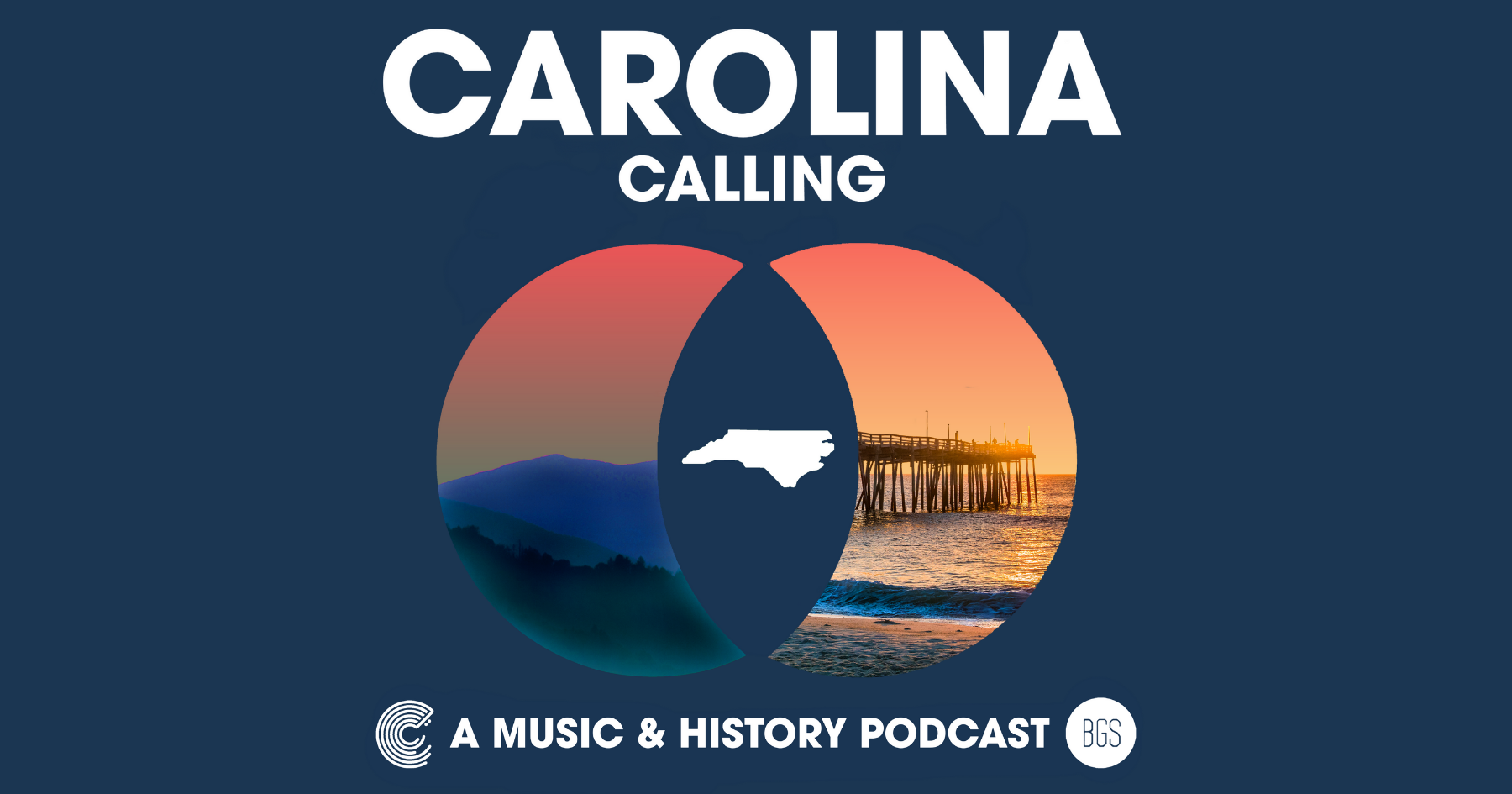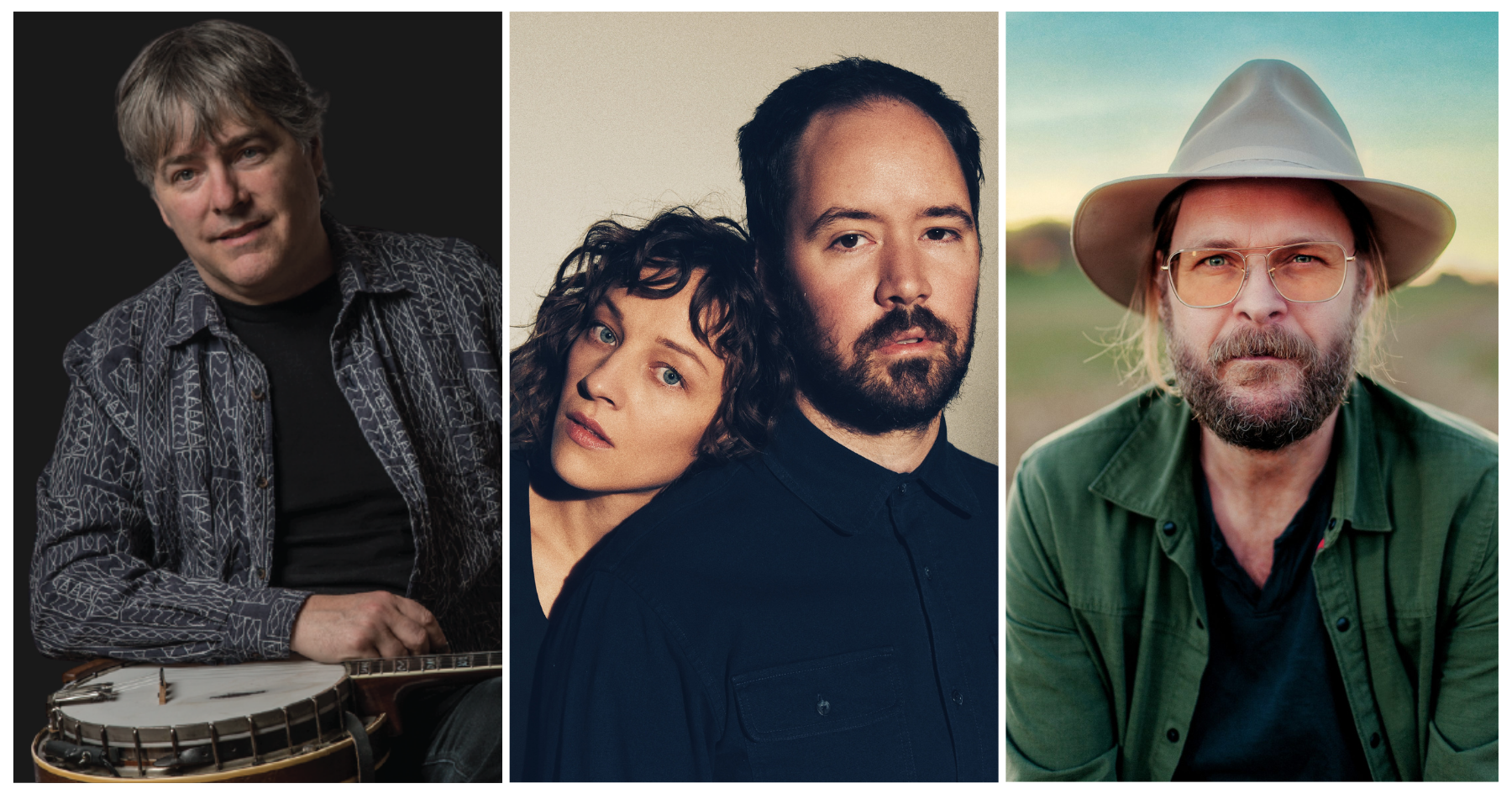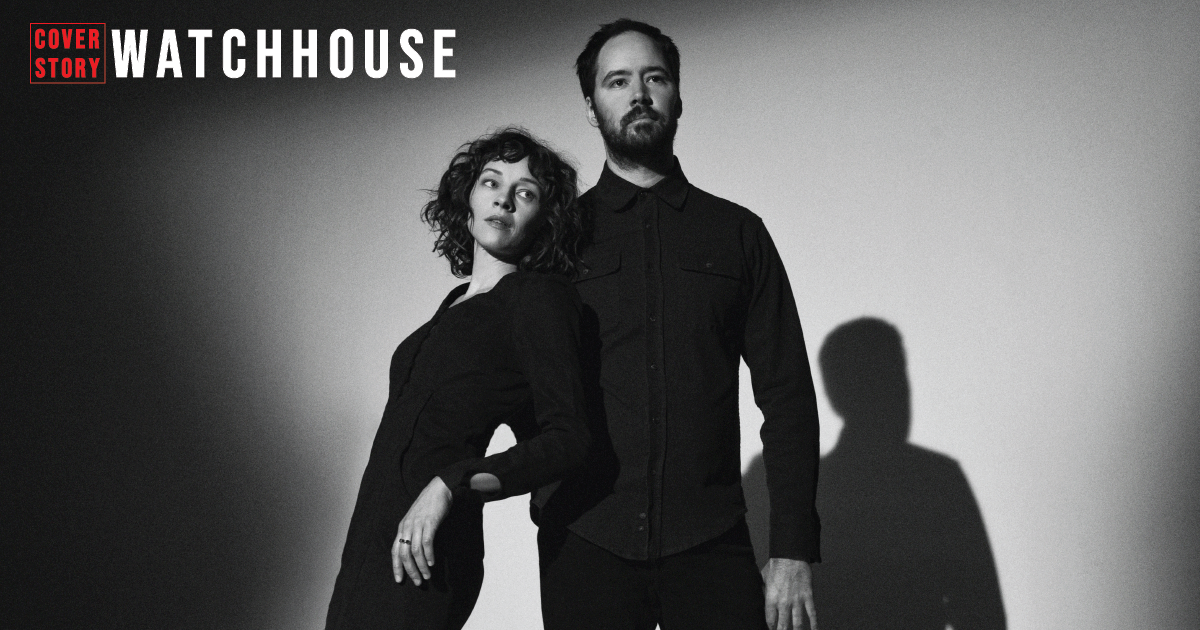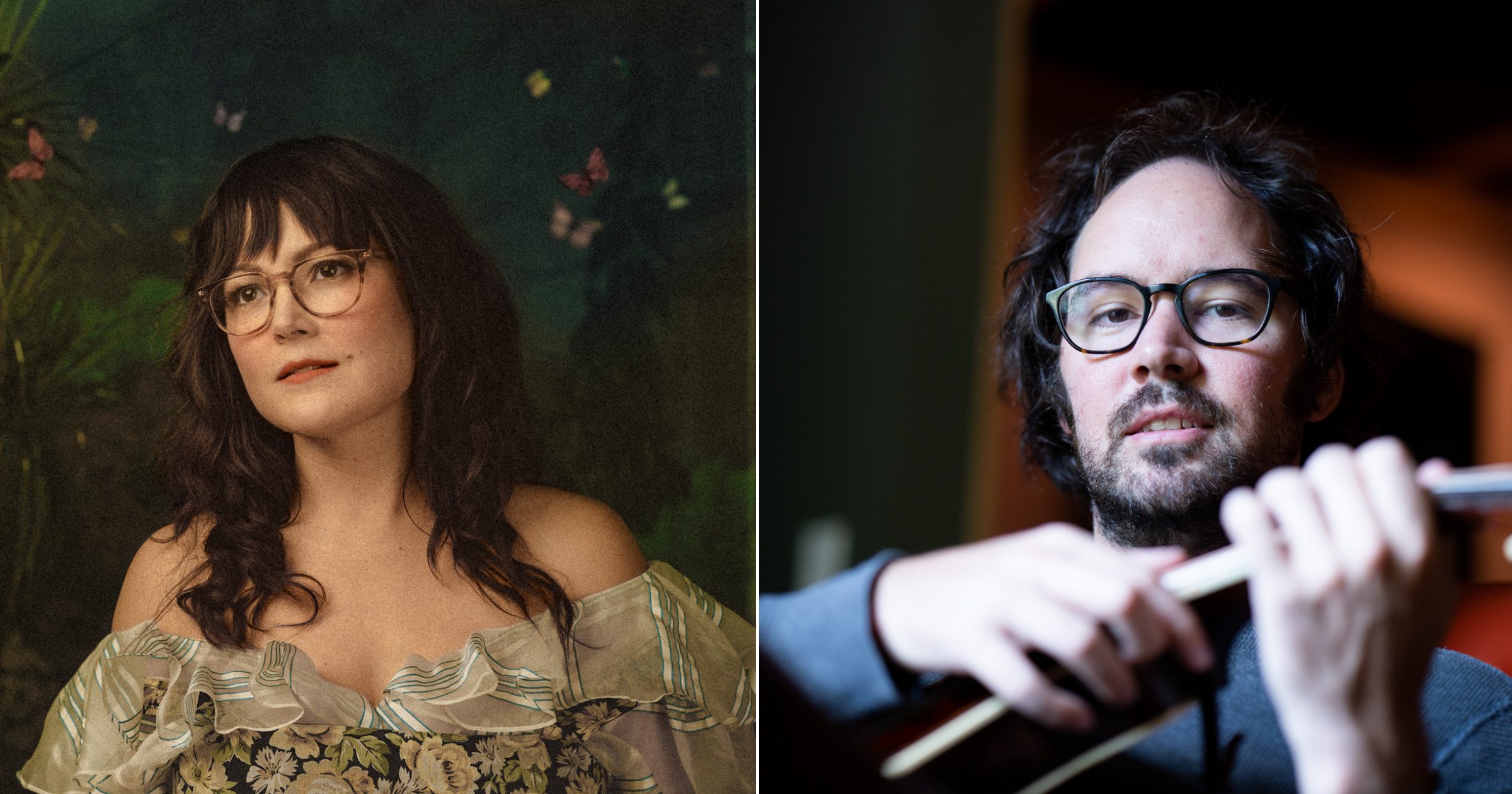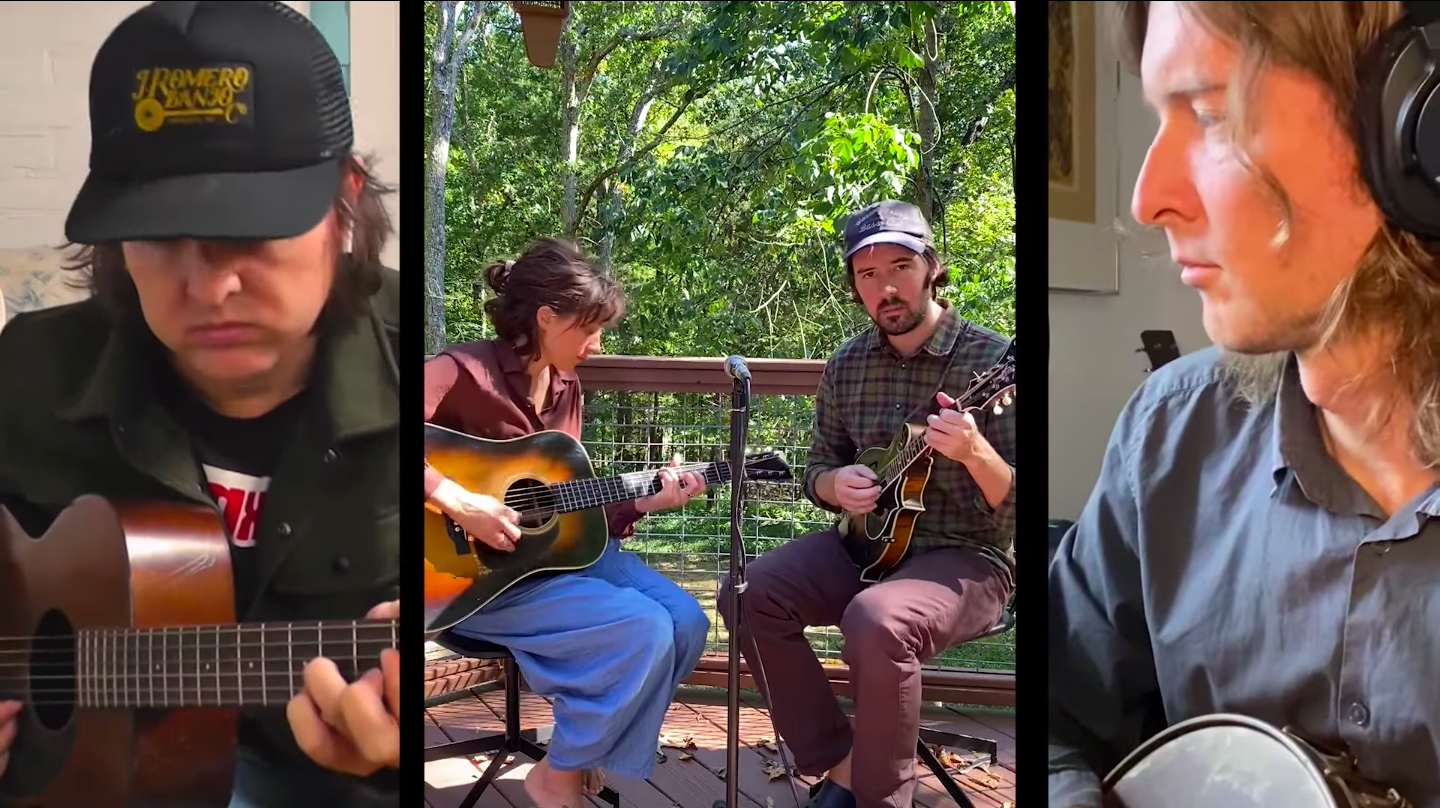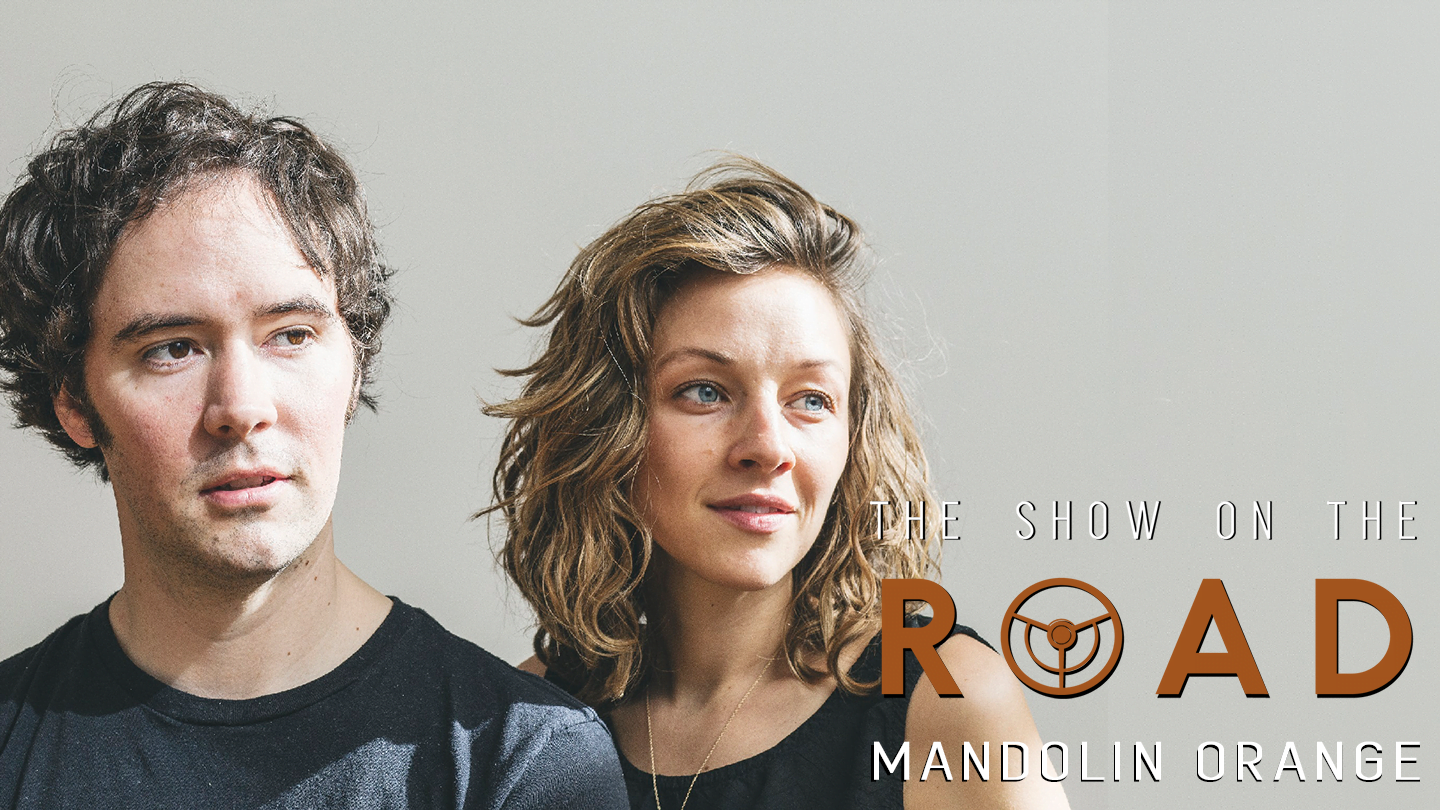When you’re the child of musicians, you get to see the world. By the time Andrew Marlin and Emily Frantz’s daughter Ruby was one year old, she had been to 34 US states and nine different countries. “She was on a bus when she was three months old,” says Marlin. “She loves traveling.”
After a year of hiatus, the family of three is back on the road again as the duo formerly known as Mandolin Orange tour their new self-titled album, Watchhouse. And Ruby, now a toddler, has transitioned back to road life more smoothly than her father, who admits he’s still “struggling to find my sea legs.”
But then this has an unarguably big summer. Performing as Watchhouse, after more than a decade as Mandolin Orange, was no small change. A year of lockdown had given the couple space to reflect on a name change that they’d wanted for a while, but resisted, concerned at how any reinvention would affect their devoted following.
Their latest project proves that their fans have nothing to fear: a medley of richly intimate songs and beautiful vocal harmonies that’s as identifiably them as anything they’ve ever made. Marlin, who writes the songs and plays mandolin to Frantz’s acoustic guitar, spoke to BGS about the new album from their North Carolina home, where they were enjoying a short pause between gigs.
BGS: Your current tour’s taking you coast to coast, from the Newport Folk Festival in Rhode Island to Redmond, Washington and all points between…
Marlin: It’s all over the map, literally. We’re out for three or four days at a time and I’m enjoying being back on tour but it’s kind of difficult to get in the groove. After we’ve been moving at a snail’s pace at home this past year, this all feels so fast-paced, so much to keep up with!
How do you feel about touring in this age of COVID. Does it feel safe yet?
I was one of the naive ones who thought we were nearly done with this thing, but we’re really not. There is a vaccine but people just aren’t taking it. So no, I don’t feel safe at all. But it’s a balancing act: we need to make money because we haven’t worked in 18 months, and we want to play shows, because that’s what we’re driven to do. Everybody wants to get back to their lives, everybody needs purpose to stay sane. To feel like there’s a reason to get up in the morning.
Was a year of lockdown hard as a new parent?
It’s all relative. Emily and I travel so much that we wouldn’t have spent so much time home as full-time parents otherwise. Eighteen months ago you would have been talking to a different person, but now I just try to live day to day, and write a little here and there. It was really difficult to write at the beginning of the pandemic, though. As a songwriter I try to latch onto things that not many people are writing about and with so many people thinking about the same thing it was hard to separate myself from it and find a way to write about it that didn’t seem unoriginal. I wrote a lot of instrumentals so I could explore how I was feeling without having to put it in words.
Have you discovered some good tunes for getting Ruby to sleep?
Pretty much anything by Paul Brady. She loves him, especially that album he did with Andy Irvine. I put that on and she’ll start talking to Paul and Andy. And because she’s been around our music since she was in the womb, if I sit down and play mandolin very quietly that’ll chill her out. I’ll sit in her room and play and she’ll doze off.
There are a lot of songs sung from a parent’s viewpoint on this new album: “Upside Down,” “New Star,” and “Lonely Love Affair.” Has becoming a father changed your perspective as a songwriter?
Passively, yes. I think the change is that I would love to help pave a safe path for my daughter and hopefully inspire some of our listeners to be kind and open up a kind world for her to go into. And that’s made my its way into my perspective even in songs where I’m not talking about it.
That’s very much the message of “Better Way,” which is about online trolling. Was that inspired by a specific incident?
A number of incidents. It isn’t unique. Every time somebody puts themselves out there on social media you have the people who love to drum up negative energy. And I can’t wrap my head around it because that’s not how I was brought up. I rarely meet people who would do that when they’re talking to you face to face. So I don’t understand why those people feel compelled to sit at their computer or pick up their phone and try to rip others apart. It’s a weird way to live.
Emily says it’s one of the favorite tracks you’ve ever laid down together.
Yeah, I love the sound of that tune. It’s a gentle drive to it, the way the groove is so set. It has this steady pulse that fits with the whole idea of the tune, this nagging thing in the back of my head: why do people feel compelled to be such assholes?
These songs were recorded all the way back in February 2020. Where did you decide to record them?
We did it right outside of Roanoke, Virginia. It’s not quite in the mountains, but it was in the hills for sure, a very peaceful place on a lake. I like making records in places that aren’t studios. It feels a little more free, to just go sit in a living room and to turn that space into a very positive musical environment is way more appealing to me than a studio where you’re watching the clock and every time you hear it tick that signifies a certain amount of money. I think you feel that relaxed energy. There’s no trying to beat the clock on this record. It’s exploring all the directions we could go as a band.
The sound of the album is certainly more exploratory than previous ones — a little richer in texture, a little less acoustic, even a touch psychedelic at times…
There are a lot of sounds we’ve used in the past but on this one we didn’t try to hide them. In the past we’ve tried to keep the simplicity of what Emily and I do in the forefront and have all these light textures around that. I think of it as a mountain peak. We’d be up at the top singing our songs and beneath us is this luscious forest, a lot of organ songs, electric guitar, drums, bass. Well, on this record we brought all the sounds up to the same level.
We’d been touring with many of these musicians since 2016 and so we were already thinking about arrangements that worked for the band and it’s a good representation of what we can do live, as a unit. A lot of people think of Emily and I as a folk duo but we have a lot of music in us! It felt nice to change the name and feel we can do whatever we want to and not limit ourselves to any idea of who people think we are.
The new name, Watchhouse, seems to be a good choice to reflect the observational world of your songwriting.
One of the most important things you can do as an artist is observe the world around you and I’ve always sought out those little peaceful places I can let my mind wander. I don’t do well in chaotic situations. I’m not the one to be right up the front by the stage in a show. I’ll usually go hang out in a corner and close my eyes and listen. I just like to find those places wherever we are, whether we’re on tour, in our neighborhood, or at home.
It makes you sound like a pretty chilled person to live with.
I play music a lot, so if you don’t like to hear constant music then probably not… in lockdown there was a lot of noodling, a lot of searching. A lot of aggression being taken out on an instrument too.
Fair point, I can see Emily needing an occasional break from that.
Oh yeah, all the time! She’d send me out of the room, or she’d go out herself…
You’ve been in a band together for 12 years, and all that time you’ve been a couple too. How do you manage to spend so much time together without driving each other crazy?
We’ve talked about that sometimes, especially with Emily’s parents. They can’t seem to wrap their head around it. I guess we just like each other!
One song on the album that seems especially raw is “Belly of the Beast.” Can you tell me the inspiration behind that?
I wrote that tune after Jeff Austin committed suicide. I didn’t know him super well, but we had a lot of mutual friends and had crossed paths through the years and it woke me up in a scary way. Being a full-time musician you have to continually find new ways to stay relevant and interesting to people, and you have to deal with real bouts of anxiety and self-consciousness. Is this good enough? Am I good enough? Writing and playing is something I’m extremely driven to do for myself, but I also have to do it for others, and I throw my music out in the world to be judged by other people. It’s a weird process that I’ve found is extremely helped by therapy!
So is that what performing is for you: “Hiding from the monsters in the belly of the beast”?
Yes — I love that line. When people talk about being nervous to perform, for me it’s not wondering whether I’m able to perform well, it’s more that when I step out on stage I don’t know what that crowd’s energy is going to be, how receptive they’re going to be. Are these people going to allow me to be myself tonight or am I going to have to put on a hat? For the most part our fans are really receptive and I can be myself. That’s when it feels like things are right.
“Beautiful Flowers” is one of the more cryptic songs on the album. It starts with a tiny flash of color and ends with some powerful images about the climate crisis. How did you get from one to the other?
I hit a butterfly when I was driving down the road and it really bummed me out. Animals have no ideas what cars are. For something to come out of nowhere at 70 miles per hour has got to be the weirdest thing in the world. And that got me thinking about who had made the first car, and it turned out it was this guy, Karl Benz. And when he made this car he had no idea where it was going to lead and how terrible it was going to be for the environment.
For our own convenience we destroy a lot of this world and don’t give a lot back as humans. And my car hitting that butterfly felt like a really strong metaphor for what we’re doing to the earth. It’s a very delicate ecosystem and we’re killing all its intricate little working parts.
Is that a challenge for you, too, with your own carbon footprint as a touring musician?
Our carbon footprint is massive, riding on buses and planes and cars… going to a festival and them using generators to supply all the power. We all see all the problems but how to step outside of your own daily needs and confront them is the conundrum, and I’m as guilty as anyone. How do you inconvenience yourself to make positive change in this world? We’re asking ourselves that right now in terms of racism, climate change, housing inequality, you name it.
Given how personal the songs are, and the fact they’re drawn from your shared life, do you ask for Emily’s input or approval as you’re writing them?
No, not really. The way I write I’ll take a specific idea and continue to break it apart until it’s more universal. I don’t want to reveal too much of myself in any given tune. I’m not laying out a bullet point retelling of my life, just musing on how I felt in a given situation — or maybe how Emily felt, or maybe a friend of ours. In fact sometimes I’ll play a new song for Emily and I’ll tell her what it’s about and she’ll say, “Huh, I thought it was about this.” And you know what? She’s not wrong.
Watchhouse is coming to the Theatre at the Ace Hotel in Los Angeles on Saturday, February 19th 2022 – grab your tickets here.
Photo credit: Shervin Lainez
